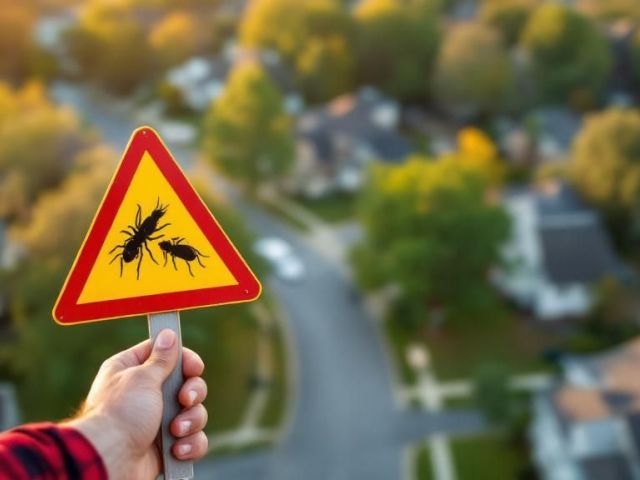Rodent Prevention in Tennessee Homes: Strategies for a Pest-Free Property
Rodent infestations are more than just a nuisance — they can threaten your home’s structure, contaminate your food, and spread disease. In Tennessee, where the climate offers an ideal breeding ground for pests like house mice and Norway rats, understanding rodent prevention is essential for every homeowner.
From sealing entry points to embracing the latest pest control technologies, an effective rodent prevention strategy combines smart home maintenance with professional expertise. This guide covers the key steps to protect your home, reduce health risks, and avoid the costly damage rodents can cause.
Why Rodent Prevention Matters in Tennessee
The state’s warm summers, mild winters, and abundant food sources create a perfect environment for rodents. In urban areas like Nashville, construction and urbanization often drive these pests into residential neighborhoods in search of shelter and sustenance.
Rodents are not just unwelcome visitors — they are carriers of dangerous pathogens, such as salmonella and hantavirus. They can also transport parasites like fleas, mites, and ticks into your home. Even a small infestation can escalate quickly, as mice reproduce every 21 days and rats every 28 days.
Early detection and proactive measures are key to stopping infestations before they start. That begins with knowing what attracts rodents and eliminating those conditions.
Step 1: Eliminate Food and Water Sources
Rodents enter homes looking for three things: food, water, and shelter. Limiting their access to these essentials is one of the simplest yet most effective prevention tactics.
-
Store food in airtight containers — Avoid leaving cereals, grains, and pet food in open packaging.
-
Clean spills promptly — Even crumbs on the counter can attract pests.
-
Secure garbage bins — Use lids that seal tightly and empty bins regularly.
-
Fix leaks — Dripping faucets and leaky pipes provide rodents with a constant water source.
Keeping your kitchen, pantry, and dining areas clean can go a long way in deterring rodents from settling in.
Step 2: Seal Every Entry Point
One of the most effective forms of rodent control is exclusion — physically blocking entry points so pests cannot enter your home in the first place. Mice can squeeze through openings the size of a dime, while rats can fit through holes no larger than a quarter.
Key areas to inspect and seal:
-
Cracks in foundations and exterior walls
-
Gaps around doors and windows
-
Openings where utility pipes or cables enter
-
Crawlspace vents and attic access points
-
Spaces under garage doors
For sealing, use durable materials like steel wool, wire mesh, caulk, or expanding foam. This makes it harder for rodents to gnaw their way inside.
Step 3: Maintain a Clean and Organized Property
A cluttered home provides rodents with nesting materials and hiding spots. Maintaining a clean and organized property both inside and outside significantly reduces the likelihood of an infestation.
-
Keep storage areas tidy and off the floor.
-
Avoid stacking firewood or debris close to your home’s foundation.
-
Trim shrubs and branches that provide easy access to your roofline.
-
Regularly clean basements, attics, and garages to reduce harborage sites.
Common Rodent Problems in Tennessee Homes
Tennessee homes most often face infestations from:
-
House Mice – Small, fast, and highly adaptable.
-
Norway Rats – Larger and more destructive, often nesting in basements and crawlspaces.
Signs of rodent activity include:
-
Droppings in cabinets or along baseboards
-
Gnaw marks on wood, wires, or food packaging
-
Rub marks along walls
-
Noises in walls or ceilings, especially at night
These warning signs should never be ignored. Acting quickly can prevent a minor issue from becoming a full-blown infestation.
Step 4: Use Traps and Baits Strategically
Traps and baits can be effective tools for controlling small rodent populations, especially when used alongside exclusion and sanitation measures.
Options include:
-
Snap traps (for quick elimination)
-
Live traps (for relocation in non-urban areas)
-
Bait stations (for targeted rodent control, often placed outdoors)
When using baits, always follow label instructions and keep them out of reach of children and pets.
The Role of Professional Rodent Control
While DIY methods can help, persistent infestations often require professional intervention. A trained pest control technician can:
-
Conduct a thorough inspection to identify entry points and nesting sites
-
Recommend customized exclusion strategies
-
Deploy professional-grade traps and baits
-
Offer ongoing maintenance plans to prevent re-infestation
A service like DOA Pest Service combines decades of local expertise with proven methods to tackle even the most stubborn rodent problems. Their team understands the unique challenges Tennessee homeowners face and offers targeted solutions to match.
Modern Innovations in Rodent Prevention
Pest control technology has evolved far beyond traditional traps. Today’s advanced solutions include:
-
Smart sensors that detect rodent movement and send real-time alerts
-
Remote monitoring for commercial properties and large homes
-
Eco-friendly deterrents that reduce environmental impact
-
Ultrasonic devices that emit high-frequency sounds to discourage nesting
These tools, when paired with proven exclusion and sanitation practices, create a highly effective layered defense.
Eco-Friendly Rodent Control Methods
Many homeowners are seeking greener pest control options. Non-toxic rodent prevention methods include:
-
Sealing and proofing over chemical treatments
-
Using peppermint, eucalyptus, or citronella oil as deterrents
-
Installing owl boxes to encourage natural predators in rural areas
-
Deploying mechanical traps instead of poison
While natural methods can help, they’re often most effective as part of a comprehensive plan rather than a standalone solution.
Rodent Infestation Statistics in Tennessee
-
Rodents are responsible for billions in property damage nationwide each year, including chewed wires, insulation destruction, and contamination.
-
In Tennessee, the peak rodent season runs from late fall through winter as pests seek warmth indoors.
-
Urban centers like Nashville experience higher infestation rates due to population density and food availability.
These statistics underscore the importance of year-round prevention rather than seasonal control.
Step 5: Make Prevention Part of Your Routine
Rodent prevention isn’t a one-time task — it’s an ongoing process. Here’s a recommended schedule for Tennessee homeowners:
-
Monthly – Inspect for droppings, gnaw marks, and possible entry points.
-
Seasonally – Refresh exterior seals, clear yard debris, and check attic/basement for activity.
-
Annually – Schedule a professional inspection to ensure no hidden infestations are developing.
Partnering with a local expert, such as DOA Pest Service, ensures your home remains protected with both proactive and reactive measures tailored to your property.
Final Thoughts
Rodent prevention is about combining smart home maintenance, exclusion techniques, and professional expertise. By eliminating food and water sources, sealing every entry point, and staying vigilant year-round, you can protect your home from the costly and unhealthy consequences of an infestation.
In Tennessee’s rodent-friendly climate, prevention isn’t optional — it’s essential. Whether you choose to handle it yourself or call in the pros, taking action now will keep your home safer, cleaner, and pest-free for the long term.










